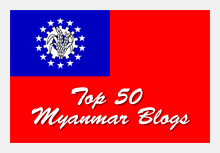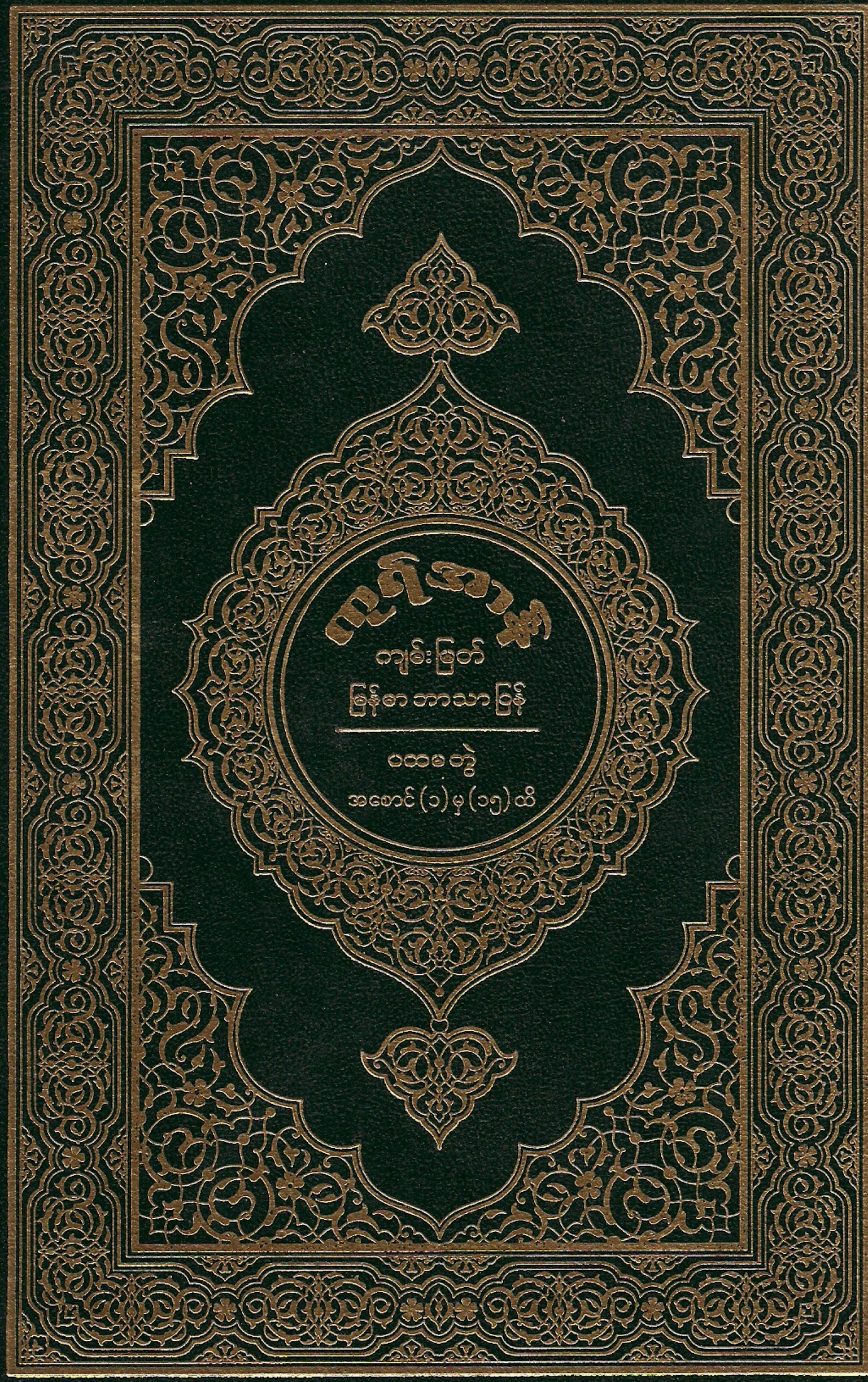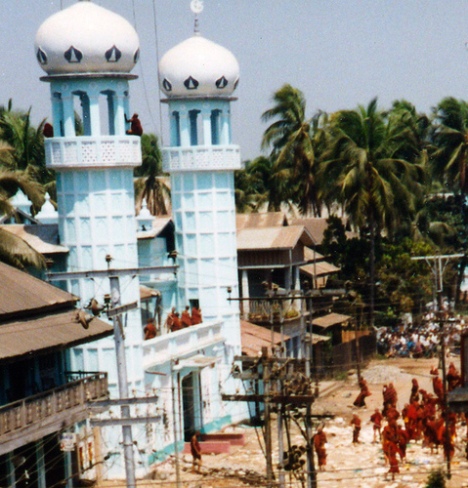We want a Mr JBJ but not another Harry Lee Kuan Yew in Burma
Jeremy Mahadevan’s “JBJ’s was the good fight “
One of my most vivid memories of the late former Singaporean opposition leader Joshua Benjamin Jeyaretnam dates back to 1986. I was waiting in a car, with my mother, outside the dull grey walls of the Queenstown prison, while my grandfather – Joshua Samuel Mahadevan, Jeyaretnam’s elder brother – was inside on an unannounced visit.
I remember being in a hopeless muddle about the whole situation; in my five year-old mind prison equated to ‘badguy’, yet I couldn’t imagine my granduncle being anything close to a badguy.
He was certainly strange: a larger-than-life character, with his dry Gray’s Inn inflections and formidable muttonchops, who addressed children with a benevolent formality that always left me weirded-out and thrilled.
But a bad guy? My grandfather often couldn’t see the point of Jeyaretnam’s struggle; I don’t know much about what transpired between the brothers that day in Queenstown, but I do know that my grandfather asked a question – why? Why go to these lengths?
Mercifully Jeyaretnam only ever went to prison once, and for a month; some of his countrymen have been far less fortunate.
However, the relative absence of prison time in Jeyaretnam’s life seems to me to indicate not his enemies’ sense of right and wrong, but the results of their analyses into the costs and benefits of martyring him.
He was never a particularly good politician, although I mean that more as a compliment than anything else – his stubbornness and his principles almost always superseded his pragmatism. His belief was that any compromise with a tainted system was tainted by association.
The battle that Jeyaretnam waged in Singapore predates Singapore itself, and is one of the perennial problems of government – where do you draw the line that limits state interference in individual lives?
On the one hand stands the liberal ideal of individual freedoms, and on the other stands the need for security.
For Jeyaretnam, no amount of security was worth the sacrifice of individual liberties to which Singaporeans have grown accustomed, while for his nemeses within the ruling People’s Action Party, security and prosperity (particularly their own) are paramount over individual rights.
The English school of value pluralism philosophers, which includes such luminaries as Isaiah Berlin, Joseph Raz and John Gray, accurately describe these wrestling values as incommensurable – that is, they cannot be measured on a common scale.
It’s impossible to say how much liberty we ought to forego for how much security, and vice-versa – it would be like determining how much time you should spend reading Shakespeare as opposed to listening to Stravinsky.
Even worse, one value seems to necessarily benefit at the expense of the other – so, for example, life in a multi-racial society is genuinely more secure when freedom of speech is curtailed to bar racist statements.
Seen in this light, the PAP argument starts to make sense. I used to vehemently deny Singaporeans the right to have an opinion on issues of right and wrong, demanding that they first stare long and hard at the injustices tattooed all over their national visage.
If any of them put forward the old PAP line that a tiny country needed an iron fist to make up for its vulnerable position, I would declare that if they thought life was all about money in the bank and entertainment on the TV screen, then they deserved to be sheep.
Still, just because I want a larger sphere of liberties, and a less powerful government, and am willing to accept as trade-offs potential inefficiency and loss of economic impetus, doesn’t mean that Singaporeans should feel the same way.
Ultimately, if these are incommensurable values, then Jeyaretnam’s fight was merely a good fight, rather than the good fight.
Harry Lee Kuan Yew, founding father, ex-Prime Minister, ex-Senior Minister and current Minister Mentor of Singapore, has always maintained that because of the country’s precarious position, individuals have to give up their own liberties in the interest of keeping the state together.
That wasn’t the final word, though – in giving up their liberties, Singaporeans submit to a directing will.
And since the PAP is essentially a construction of Lee Kuan Yew’s will, the message drilled into Singapore has basically been: Harry Lee knows best, he will guide you in the best possible direction, so just listen and obey.
Of course, Lee has a habit of fraudulently presenting this as an aspect of ‘Asian values’, which are supposedly incompatible with ‘western-style’ liberties, yet the underlying argument is logically sound.
If I know what’s best for my people, then even if they don’t know it themselves, they’re best off doing things my way.
In some ways they’re actually freer if I decide things for them. This is an ugly aspect of a particular conception of liberty, which Berlin referred to as ‘positive liberty’ – the idea that a person should be free not only from outside control, but from the control of their own ‘lesser’ faculties, such as their lustfulness, weakness of intellect or short-sightedness.
Many of the harshest dictatorships in history have had their ideology backboned by a concept of positive liberty, wherein people are coerced into accepting the command of leaders who ‘know best’. Singapore, as the world’s only economically successful fascist state, is no exception. The history of the island republic is in many ways the history of Lee’s will bludgeoned into others, as outlined in books such as Chris Lydgate’sLee’s Law and Francis Seow’s The Media Enthralled (Singapore Revisited).
Lee himself, quite tellingly, loved employing the terminology of mental illness to describe Jeyaretnam – calling him ‘disturbed’, and in need of ‘psychoanalysis’ – to my mind, Lee genuinely believed that Jeyaretnam’s obsession with individual liberties was some kind of perversion that impeded the One True Reason.
The troublesome fact remains, though, that if Singaporeans accept this state of affairs, then however silly it may seem to me, I cannot really call it wrong.
Coercion, or the threat of coercion, is integral to most societies, after all.
Furthermore, at least on the face of things, Singapore is a democracy, and there has never been any indication of vote-rigging in the electoral processes – the government seems to prefer rigging everything but the vote – so if enough citizens are willing to accept their lack of liberties, then that’s up to them.
Jeyaretnam always evinced a remarkable amount of faith in Singaporeans, saying that ‘the strength is in the ordinary people’.
He adhered to the tenet of John Stuart Mill’s liberalism, that people should be allowed to do and say whatever they wish, provided that they bring no harm to others.
Of course, the PAP argued that the nation could come to much harm if people were to do and say as they wished, but Jeyaretnam always maintained that what Lee and co. were most scared of was not that harm may come to the nation, but to their own stranglehold on power. He believed not only that Singaporeans were fit to govern themselves, but also that they wanted self-government, badly enough that if the PAP were only shown to be vulnerable and crooked, the public would take back the power without hesitation.
The instrument the PAP has employed to bully Jeyaretnam and others like him is the law; their usual strategy is to target it at the point of interpretation – the judiciary – to ensure that the reading of the law is favourable to their case. Lydgate writes of one Singaporean judge who ruled that PAP leaders had not broken a law prohibiting politicians from being within a 200-metre radius of polling stations on election days, because they had been inside a polling station, and not within a 200-metre radius of it.
The PAP’s litigious contrivances were always cruelly ironic, because Jeyaretnam loved the law far more than he ever loved politics.
He believed strongly in the judiciary’s duty to protect citizens from the state, through independent and honourable legal interpretations. No matter how much the courts were used against him, he always submitted to due procedure, and respected the legal system – perhaps, some would say, a little too much. Funnily enough, it was Jeyaretnam’s unremitting respect for the law that finally made clear the PAP’s disrespect for it.
The more he fought, the more ridiculous their rulings and lawsuits became, and the more the truth – that they value their own interests above any law – became naked for all to see.
Jeyaretnam believed that to lead Singaporeans down the path to self-government, he needed to battle from within the legal system, to show them that they can stand up for their rights as individuals.
So he devoted his life to applying his personal principles of individual sanctity, democracy and judicial integrity against the PAP, principles that Lee Kuan Yew himself vowed to break. “I will make him beg for mercy”, he once said of Jeyaretnam… but it was a battle that Hatchet Man Harry could never win; Jeyaretnam carried his principles intact to his dying day.
I have always had my doubts about Jeyaretnam’s faith in Singaporeans.
Three years ago I finally worked up the guts to ask him the question that my grandfather had asked in Queenstown prison: why? Why fight for people who don’t fight with you, who aren’t grateful, who don’t even seem to understand what it is you’re fighting for? They seem to have happily swallowed the PAP’s prescription of sugar-coated pills, so why fight for them? With a faintly bitter smile, he said, “But surely those are the people for whom you should be fighting the most.”
In the aftermath of his death I have seen an overwhelmingly reverent, and even remorseful, tone in the condolence messages and posts on many Singaporean blogs and forums.
There have even been pledges to never forget the values that Jeyaretnam fought for, and attempts to have his life officially commemorated. His faith in and his fight for the common Singaporean may yet bear the fruits he never lived to see.
Filed under: Blogging, Burma, English Article, Human Rights, Myanmar, Myanmar Military, Politics, SPDC | Tagged: ex-Prime Minister of Singapore, ex-Senior Minister of Singapore, founding father, Harry Lee Kuan Yew, Joshua Benjamin Jeyaretnam, Minister Mentor of Singapore, Singapore, Singaporean opposition leader, Singaporean opposition leader Joshua Benjamin Jeyaretna |












+(Small).jpg)


[…] The Passing of JBJ – Wayang Party Club: A national day of mourning for JBJ by Singaporeans – ed’sperience’s Blog: reflections: on JBJ’s candlelight vigil, perspectival space, and the future of Singapore – San Oo Aung’s WeblogWe want a Mr JBJ but not another Harry Lee Kuan Yew in Burma […]